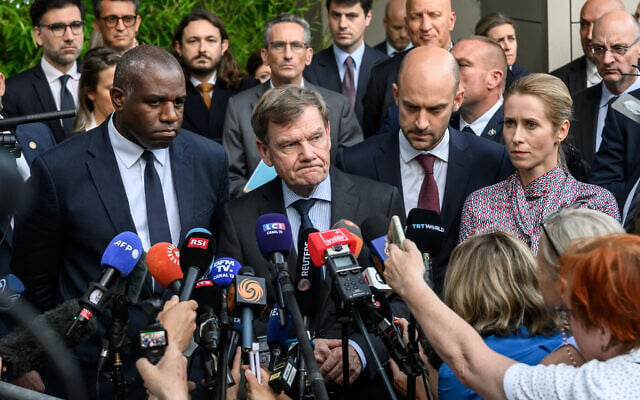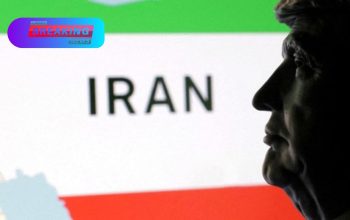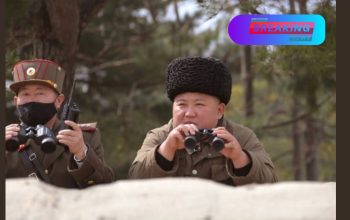Introduction
Iran has officially announced that it will engage in a new round of nuclear negotiations with the United Kingdom, France, and Germany in Istanbul. Scheduled for July 25, the talks mark the first direct diplomatic engagement between Iran and the so-called E3 powers since the brief but intense conflict with Israel and the United States last month. Iran presents the upcoming negotiations as an opportunity to ease tensions and seek sanctions relief, while European powers intend to pressure Tehran back into compliance with the 2015 nuclear agreement, formally known as the Joint Comprehensive Plan of Action (JCPOA).
The Istanbul venue signals a diplomatic reset. Turkey’s role as a mediator offers a neutral setting that appeals to both Iran and Europe. The city’s strategic position, straddling both Europe and Asia, adds symbolic weight to the negotiations.
Background: Iran’s Nuclear Program and the JCPOA
Iran’s nuclear ambitions have drawn global attention for more than two decades. Although Iran insists its program serves only peaceful purposes, Western nations have long suspected Tehran of seeking nuclear weapons capability. The 2015 JCPOA represented a breakthrough in curbing these ambitions. Under the deal, Iran agreed to restrict its enrichment activities, reduce uranium stockpiles, and accept rigorous international inspections in exchange for the lifting of major economic sanctions.
However, the deal began unraveling in 2018 after the United States unilaterally withdrew and reimposed sanctions. In response, Iran steadily reduced its compliance, enriching uranium to levels far above the JCPOA limits. By mid-2025, experts warned that Iran had enriched uranium close to weapons-grade purity, dramatically shortening the “breakout time” needed to produce a nuclear weapon.
Tensions peaked in June when Israeli airstrikes and subsequent U.S. attacks severely damaged Iranian nuclear facilities. Tehran retaliated by halting cooperation with international inspectors and accelerating its enrichment activities. The risk of a broader conflict loomed, and diplomatic efforts stalled.
Details of the Istanbul Talks
The talks in Istanbul will take place at the deputy foreign minister level. This decision reflects a cautious approach by all parties. Iran seeks to avoid escalation and protect its nuclear achievements, while the E3 wants to delay or prevent the automatic reinstatement of UN sanctions—known as the snapback mechanism—scheduled for late August if no progress is made.
Iranian officials have stated that the purpose of the meeting is to discuss sanctions relief and reaffirm the country’s right to pursue peaceful nuclear energy. They emphasized that the talks should be “balanced and mutually respectful,” rejecting any preconditions that require Iran to halt enrichment entirely.
European diplomats aim to persuade Iran to return to JCPOA compliance by capping enrichment levels and reinstating full access for international inspectors. They also intend to use the talks to maintain pressure on Iran, signaling that time is running out for diplomacy. However, they acknowledge that outright confrontation would be disastrous, both politically and economically.
Turkey’s involvement as the host underscores its aspiration to play a greater diplomatic role in the region. Though not directly participating, Turkish officials have facilitated the logistics and emphasized the need for de-escalation.
Reactions from Key Global Actors
United States
Although Washington is not directly involved in the Istanbul talks, it continues to shape the broader context. The U.S. has expressed cautious support for renewed negotiations, provided that Iran is willing to discuss all aspects of its nuclear program. At the same time, the Biden administration has reiterated its readiness to act militarily if Iran crosses critical thresholds. U.S. officials have encouraged allies to use the Istanbul platform to test Iran’s sincerity.
European Union and E3 Powers
The United Kingdom, France, and Germany are keen to prevent the total collapse of the JCPOA. While their patience has worn thin, they view diplomatic engagement as the least harmful option. European leaders believe that the Istanbul meeting could help avoid triggering the snapback mechanism, which would isolate Iran further and strain transatlantic unity. The EU’s foreign policy chief played a central role in organizing the session and will continue facilitating follow-up discussions.
Israel
Israel remains deeply skeptical of any renewed talks. Israeli leaders believe Iran has already acquired the knowledge and infrastructure necessary to produce a nuclear weapon. Officials in Tel Aviv warn that any agreement allowing Iran to retain significant enrichment capacity is unacceptable. Though Israel is not part of the talks, it maintains pressure on allies to avoid concessions. Military options remain on the table, and further strikes have not been ruled out.
Gulf States
Gulf Arab countries, particularly Saudi Arabia and the United Arab Emirates, have adopted a more cautious approach. While they support diplomatic efforts, they remain wary of Iran’s intentions and regional ambitions. Publicly, Gulf leaders have called for restraint and warned against further escalation. Privately, they prefer a framework that restricts Iran’s nuclear and ballistic capabilities. Gulf economies also have a vested interest in regional stability, especially given the sensitivity of global oil markets.
Russia
Russia continues to play a supportive role in Iran’s diplomatic outreach. Russian officials have advocated for a political resolution and oppose unilateral sanctions. Moscow has encouraged Tehran to reengage in dialogue and has provided backing in international forums. As a JCPOA signatory, Russia seeks to preserve the deal’s structure and maintain influence in Middle East diplomacy.
China
China has also encouraged all parties to pursue diplomacy. Beijing emphasizes that sanctions and military threats will not resolve the crisis. Chinese officials have reaffirmed their commitment to Iran’s right to peaceful nuclear energy and urged restraint on all sides. China views Iran as a key partner in its Belt and Road Initiative and supports regional stability as essential to its strategic and economic interests.
Potential Outcomes and Strategic Risks
The Istanbul negotiations offer both promise and peril. A positive outcome could involve Iran agreeing to suspend high-level enrichment, allow greater access to inspectors, and return to indirect talks with the United States. In exchange, European nations might push for partial sanctions relief or delay triggering the snapback mechanism.
Such a scenario would temporarily stabilize the region and buy time for more comprehensive talks. It could also pave the way for U.S. re-engagement, either through a parallel diplomatic channel or future multilateral frameworks.
On the other hand, failure to make progress could lead to renewed sanctions and a dangerous cycle of escalation. If Europe triggers the snapback mechanism, Iran may abandon all pretense of compliance and accelerate its nuclear program further. This could provoke another round of Israeli or U.S. military strikes, risking broader regional conflict.
The Middle East remains highly volatile. Miscalculations or miscommunication could lead to unintended consequences, especially with several actors pursuing divergent interests. The Strait of Hormuz remains a strategic chokepoint, and any disruption could have global economic repercussions.
Conclusion
The upcoming nuclear talks in Istanbul represent a pivotal moment for regional and global diplomacy. After years of setbacks and confrontations, Iran and the E3 now face a narrow window to restore trust and reduce tensions. Though expectations are low, the stakes are undeniably high.
Whether this meeting serves as the first step toward reviving the JCPOA or merely postpones a deeper crisis will depend on the willingness of all sides to compromise. While Iran seeks recognition of its sovereign rights and relief from crippling sanctions, Europe demands verifiable limits and transparency. Bridging this divide will require skillful diplomacy, patience, and political will.
For now, the world watches Istanbul. The success or failure of these talks may well determine the next chapter of nuclear diplomacy—and the balance of power in the Middle East.



